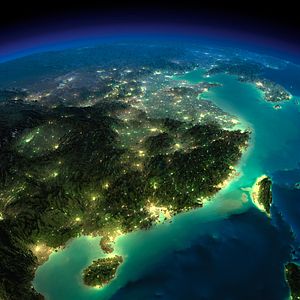American Institute in Taiwan Chairman Raymond Burghardt has made news in Taiwan for his comments in a June 22 Voice of America interview regarding whether a 1992 Consensus exists between China and Taiwan. The effect of his comments is noteworthy for once again showing the sensitivity many have to United States comments about cross-straits relations, and, proving once again that departures from the 1992 Consensus create risks for Taiwan.
Mr. Burghardt is unique in the current array of Taiwan policy experts. As time goes by, he has become one of the few U.S. Taiwan policymakers who was also a serving Foreign Service Officer when the United States derecognized the Republic of China in 1979 (though he was posted to Hong Kong at the time). He has significant experience in both China and Taiwan, having served as consul general in Shanghai (1997-1999) and political counselor in Beijing (1987-1989), then as director of the Taipei office of the American Institute in Taiwan (1999-2001) and AIT chairman since 2006. To his credit, he has, in public, remained consistent in questioning whether there is a 1992 Consensus.
In the VOA interview, Mr. Burghardt noted that in his meetings with Straits Exchange Foundation Chairman Koo Chen-fu and Association for Relations Across the Taiwan Straits President Wang Daohan, the term “1992 Consensus” was not used, though Koo would refer to the “1992 Understanding.” Mr. Burghardt emphasized that whether it is a “1992 Understanding” or “1992 Consensus” is not for the United States to opine on. He noted that under the 1982 Six Assurances, the United States does not mediate between Taiwan and China and that the United States will not pressure Taiwan to enter into negotiations with China. He reaffirmed the value of these two assurances, opining that Beijing would not oppose them.
In a August 28, 2001 speech to the American Chamber of Commerce in Taipei prior to departing his post in Taipei, Mr. Burghardt said that after the 1992 cross-strait negotiators meeting in Hong Kong, the two sides exchanged faxes detailing their respective stances. According to Mr. Burghardt, there was “some language that overlapped and some language that differed” and that if the Kuomintang called this the “1992 Consensus,” it is to some extent “confusing and misleading.” He added that perhaps both sides will recognize that the most important consensus reached in 1992 was that it is in the interest of each side to engage in dialogue, and concluded, “Maybe all you have to do is say that an agreement was reached … in 1992 and that it remains in effect.”
Yet three months later and days before the December 1, 2001 Legislative Yuan elections, an unnamed senior State Department official told reporters that the United States had no opinion on what the basis of cross-straits dialogue is, as long as dialogue resumed. The official noted though that absent a consensus at the 1992 meeting, the 1993 Singapore Koo-Wang meeting could not have occurred. Such remarks, only a year and half into Chen Shui-bian’s presidency, during which cross straits relations continued the deterioration that began with his predecessor Lee Teng-hui’s 1999 characterization of cross-straits relations as “special state-to-state” ties, appears to indicate a U.S. preference for China and Taiwan to agree that there was in fact a consensus.
Fortunately, we also have the Wikileaks resource to examine history. A June 18, 2007 cable from AIT about a meeting two days earlier between Mr. Burghardt and KMT chairman and presidential candidate Ma Ying-jeou reports that “Ma told Burghardt that if elected president, the KMT will stabilize cross-Strait relations, because the KMT already shares common ground with Beijing, both sides having accepted the ‘one China, different interpretations’ formulation of the 1992 Consensus.” The cable does not report that Mr. Burghardt questioned Ma’s formulation. A March 19, 2009 cable about a meeting the previous day between then Democratic Progressive Party Chairwoman Tsai Ing-wen and Mr. Burghardt reports that he explained to Tsai “that he was visiting Taiwan to convey to President Ma and others that the Obama administration is pleased with the improvement in cross-Strait relations” and that “Burghardt questioned the DPP criticisms of Ma’s initiatives.” One must assume that during the eight years of the Ma Administration, Burghardt was often told by Ma Administration officials that the 1992 Consensus was the basis for improvements in cross-straits relations, giving Burghardt ample opportunity to challenge the existence of such a consensus.
So, what do we make of Burghardt’s comments in the VOA interview, coming so shortly after Tsai’s inauguration as president? It’s clear that the United States has not rejected the 1992 Consensus as the basis for cross-straits negotiations (though if Mr. Burghardt prefers, he may refer to it as the 1992 Understanding). It’s also clear that the United States maintains its position that China and Taiwan must, on their own, agree to the formulation for cross-straits negotiations and that the United States will not serve as a mediator. If President Tsai rejects the 1992 Consensus, one would expect she’ll face a similar, though more uncomfortable, conversation with Mr. Burghardt as the one related in the 2009 Wikileaks cable.
Eric Huang is the head of the international department at the Kuomintang. The views expressed here are his own.

































